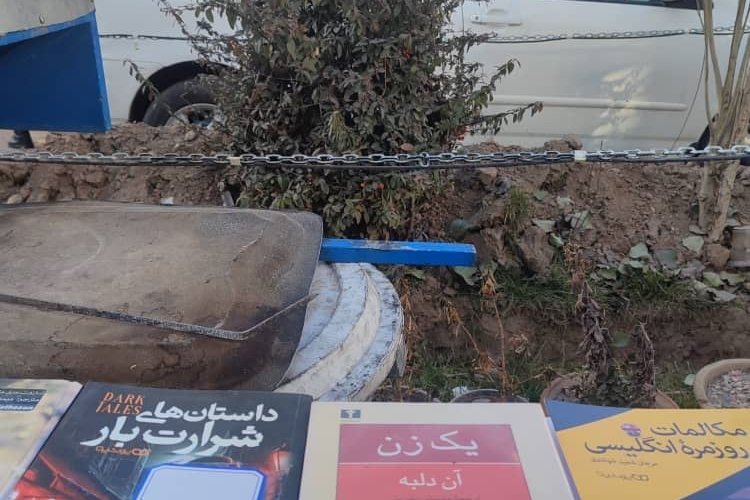Street book exhibition in Herat and Taliban’s censorship of book covers
3. Street Book Fair and Taliban Censorship of Cover Images
In recent days, a five-day book fair was held in the Amrit area of Herat, but this cultural event faced restrictions imposed by the Taliban. The Taliban ordered booksellers to cover the images on book covers. The censorship of depictions of living beings had previously been enforced by the Taliban in Herat and several other provinces of the country.
Some booksellers say that, according to the Taliban’s orders, they are forced to cover images of human faces, especially women, on book covers. As a result, many books from different genres were displayed with stickers and colored coverings.
Despite the censorship and restrictions imposed by the Taliban, the five-day street exhibition provided an opportunity for book enthusiasts to access various works. A large number of young boys and girls attended the fair and welcomed its organization.
One young woman, passionate about books and present at the fair, said: "A book cover is not just an image; it is part of its identity and message. The fact that the Taliban even have a problem with cover images shows their sensitivity to any form of artistic and intellectual expression."
A writer commenting on the censorship of book covers stated: "Covering the images on books has a certain meaning, but it cannot diminish the essence and impact of reading. This act cannot prevent understanding, but it is a sign of Taliban ignorance and their enmity towards knowledge. The soul of a book lies in its words and content."
Since their return to power, the Taliban have imposed extensive restrictions on cultural and artistic activities, including book fairs. Previously, they placed several books on a "banned books list" and prohibited their sale and reading.
Despite these restrictions, book lovers and cultural activists continue their efforts to preserve intellectual and literary spaces in Afghanistan. They see such exhibitions as a way to resist the suppression of thought.

